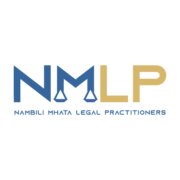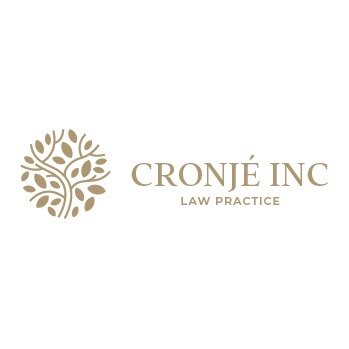Best ADR Mediation & Arbitration Lawyers in Windhoek
Share your needs with us, get contacted by law firms.
Free. Takes 2 min.
List of the best lawyers in Windhoek, Namibia
About ADR Mediation & Arbitration Law in Windhoek, Namibia
Alternative Dispute Resolution (ADR) in Windhoek, Namibia, encompasses methods such as mediation and arbitration that offer alternative pathways to resolving disputes outside the traditional court system. These methods are appreciated for their ability to save time and reduce costs, as well as their informal and collaborative nature. Mediation involves a neutral third party who assists disputing parties in reaching a mutually agreeable solution, while arbitration involves a neutral arbitrator or panel making binding decisions after hearing each party's case. The legal framework for ADR in Namibia seeks to streamline disputes in areas such as commercial, family, and labor conflicts, facilitating a more efficient justice system.
Why You May Need a Lawyer
There are various reasons you might require legal assistance in the field of ADR mediation and arbitration in Windhoek, Namibia:
- Commercial Disputes: Children of business disagreements, such as contract breaches, often benefit from guided negotiation and the expertise of an ADR-focused lawyer.
- Family Matters: Divorce settlements, child custody, and family inheritance disputes can be emotionally charged, requiring skilled mediation to reach amicable solutions.
- Employment Issues: Issues ranging from unfair dismissals to workplace discrimination can benefit from an arbitrator’s impartiality and specialist advice.
- Property Disputes: Disagreements over land ownership or rental contracts can often be more effectively resolved through ADR than in court.
- Complex Legalities: Navigating laws, regulations, and procedures can be difficult without legal education, prompting the need for professional guidance.
Local Laws Overview
The legal landscape in Namibia supports and regulates ADR mechanisms to ensure fairness, efficiency, and accessibility. The Arbitration Act 1965 and the Labour Act 2007 play significant roles in underpinning ADR processes, ensuring that arbitration agreements are enforceable and that the methodologies are adaptively applied to labor disputes. Mediators and arbitrators are expected to be impartial and qualified, providing equitable resolutions in accordance with national standards and ethical practices. Parties involved in ADR can expect confidentiality, which contrasts with the public nature of court cases.
Frequently Asked Questions
What is the difference between mediation and arbitration?
Mediation involves a neutral facilitator who helps parties devise their own agreement, while arbitration involves an arbitrator making a binding decision for the parties.
Is ADR legally binding in Namibia?
An arbitration award is typically binding, whereas agreements from mediation are binding if formalized through contracts.
How long does the ADR process take?
The duration varies depending on the complexity of the dispute, but ADR is generally faster than court litigation.
Do I need a lawyer for ADR?
While not mandatory, legal representation can provide valuable assistance in preparing for and navigating the ADR process.
What are the costs associated with ADR?
Costs vary widely depending on the nature of the dispute, complexity, and the ADR professionals involved, but ADR is generally less costly than litigating in court.
Can ADR be used in family disputes?
Yes, ADR is often used in family disputes involving child custody arrangements, divorce settlements, and property divisions.
What should I look for in a mediator or arbitrator?
Look for credentials, experience in the relevant dispute area, and professional reputation.
Can I switch from court proceedings to ADR?
Yes, parties can choose to switch provided they agree to do so and meet any court requirements for such a transition.
What happens if I am unsatisfied with an arbitration decision?
Arbitration decisions are typically binding with limited scope for appeal, so it is crucial to understand this before agreeing to the process.
Is ADR confidential?
Yes, ADR sessions are generally confidential, which can be a significant advantage for parties seeking privacy.
Additional Resources
For those seeking further assistance and information, consider reaching out to the following organizations:
- Namibia Lawyers Association: Provides a directory of practicing ADR professionals.
- Ministry of Justice: Offers guidance and information on legal rights and ADR processes.
- Legal Assistance Centre: Provides resources and advice regarding mediation and arbitration services.
Next Steps
If you need legal assistance in ADR mediation and arbitration, consider the following steps:
- Consult a Legal Expert: Reach out to a lawyer specializing in ADR to discuss your specific situation and explore available options.
- Gather Documentation: Collect any relevant documents, agreements, or records that will help facilitate the ADR process.
- Choose Your ADR Professional: Select a mediator or arbitrator based on the nature of the dispute and their expertise.
- Understand Your Rights: Be informed about your legal rights and obligations within the ADR framework.
- Stay Informed: Keep abreast of any changes in the legal landscape regarding ADR processes and practices in Namibia.
Lawzana helps you find the best lawyers and law firms in Windhoek through a curated and pre-screened list of qualified legal professionals. Our platform offers rankings and detailed profiles of attorneys and law firms, allowing you to compare based on practice areas, including ADR Mediation & Arbitration , experience, and client feedback.
Each profile includes a description of the firm's areas of practice, client reviews, team members and partners, year of establishment, spoken languages, office locations, contact information, social media presence, and any published articles or resources. Most firms on our platform speak English and are experienced in both local and international legal matters.
Get a quote from top-rated law firms in Windhoek, Namibia — quickly, securely, and without unnecessary hassle.
Disclaimer:
The information provided on this page is for general informational purposes only and does not constitute legal advice. While we strive to ensure the accuracy and relevance of the content, legal information may change over time, and interpretations of the law can vary. You should always consult with a qualified legal professional for advice specific to your situation.
We disclaim all liability for actions taken or not taken based on the content of this page. If you believe any information is incorrect or outdated, please contact us, and we will review and update it where appropriate.
















